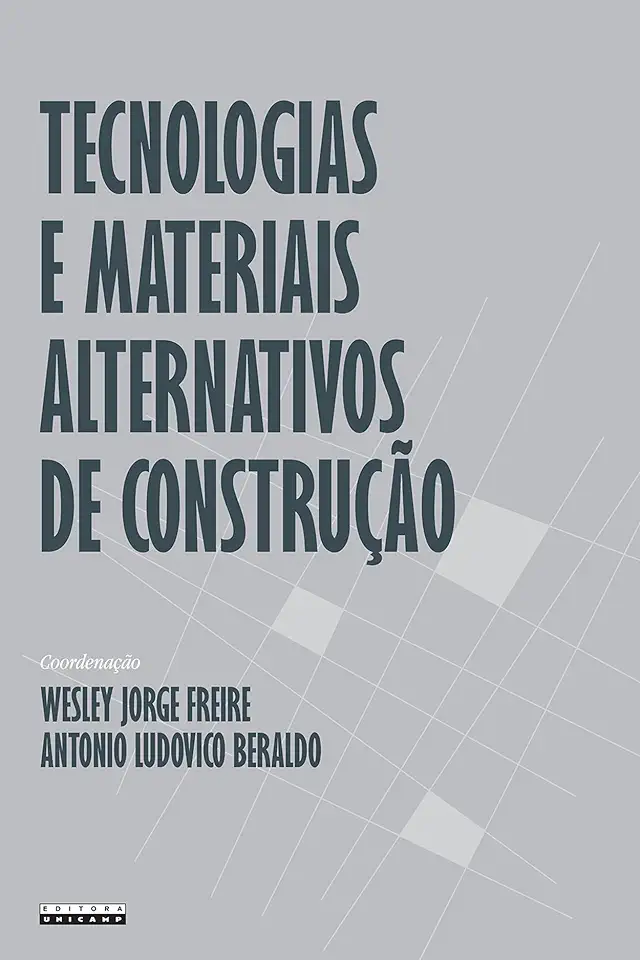
Alternative Construction Technologies and Materials - Wesley Jorge Freire
Alternative Construction Technologies and Materials: A Comprehensive Guide to Sustainable Building Practices
Introduction
In today's world, the construction industry faces significant challenges in terms of sustainability and environmental impact. Conventional building practices often rely on resource-intensive materials and processes, contributing to greenhouse gas emissions, deforestation, and waste generation. To address these concerns, there is a growing demand for alternative construction technologies and materials that offer sustainable and eco-friendly solutions.
Exploring Sustainable Building Materials
This comprehensive guide, "Alternative Construction Technologies and Materials," provides a wealth of information on innovative and sustainable building materials that can significantly reduce the environmental impact of construction projects. Written by Wesley Jorge Freire, a renowned expert in sustainable construction, this book offers a comprehensive overview of alternative materials, their properties, and their applications in various construction contexts.
Key Features:
In-depth Analysis: The book delves into the technical aspects of alternative construction materials, including their composition, manufacturing processes, performance characteristics, and environmental benefits.
Real-World Case Studies: Numerous case studies from around the world showcase successful implementations of alternative construction technologies and materials, providing practical insights into their effectiveness and feasibility.
Comprehensive Coverage: The book covers a wide range of alternative materials, including bio-based composites, recycled materials, rammed earth, bamboo, and more, ensuring a comprehensive understanding of sustainable building options.
Sustainability Assessment: Freire provides a detailed framework for assessing the sustainability of alternative construction materials, considering factors such as embodied energy, life cycle assessment, and environmental impact reduction.
Benefits of Alternative Construction Technologies and Materials
Adopting alternative construction technologies and materials offers numerous benefits, including:
Reduced Environmental Impact: Sustainable materials can significantly reduce greenhouse gas emissions, minimize waste generation, and conserve natural resources, contributing to a greener and more sustainable built environment.
Enhanced Building Performance: Many alternative materials offer superior performance characteristics compared to conventional materials, providing better insulation, thermal comfort, and durability, leading to improved building performance and occupant well-being.
Cost-effectiveness: While some alternative materials may have higher upfront costs, they often offer long-term cost savings due to their durability, energy efficiency, and reduced maintenance requirements.
Innovation and Design Flexibility: Alternative materials open up new possibilities for innovative and creative design solutions, allowing architects and builders to explore unique and sustainable building forms.
Conclusion
"Alternative Construction Technologies and Materials" is an essential resource for architects, engineers, builders, policymakers, and anyone interested in sustainable construction practices. By providing a comprehensive understanding of alternative materials and their applications, this book empowers readers to make informed decisions and contribute to a more sustainable future for the construction industry.
Call-to-Action
Embrace the transformative power of sustainable construction by exploring the wealth of knowledge offered in "Alternative Construction Technologies and Materials." Order your copy today and embark on a journey towards a greener, more sustainable built environment.
Enjoyed the summary? Discover all the details and take your reading to the next level — [click here to view the book on Amazon!]